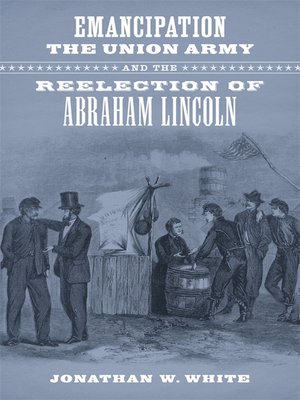Emancipation, the Union Army, and the Reelection of Abraham Lincoln
ebook ∣ Conflicting Worlds: New Dimensions of the American Civil War
By Jonathan W. White

Sign up to save your library
With an OverDrive account, you can save your favorite libraries for at-a-glance information about availability. Find out more about OverDrive accounts.
Find this title in Libby, the library reading app by OverDrive.



Search for a digital library with this title
Title found at these libraries:
| Loading... |
The Union army's overwhelming vote for Abraham Lincoln's reelection in 1864 has led many Civil War scholars to conclude that the soldiers supported the Republican Party and its effort to abolish slavery. In Emancipation, the Union Army, and the Reelection of Abraham Lincoln Jonathan W. White challenges this reigning paradigm in Civil War historiography, arguing instead that the soldier vote in the presidential election of 1864 is not a reliable index of the army's ideological motivation or political sentiment. Although 78 percent of the soldiers' votes were cast for Lincoln, White contends that this was not wholly due to a political or social conversion to the Republican Party. Rather, he argues, historians have ignored mitigating factors such as voter turnout, intimidation at the polls, and how soldiers voted in nonpresidential elections in 1864.
While recognizing that many soldiers changed their views on slavery and emancipation during the war, White suggests that a considerable number still rejected the Republican platform, and that many who voted for Lincoln disagreed with his views on slavery. He likewise explains that many northerners considered a vote for the Democratic ticket as treasonous and an admission of defeat.
Using previously untapped court-martial records from the National Archives, as well as manuscript collections from across the country, White convincingly revises many commonly held assumptions about the Civil War era and provides a deeper understanding of the Union Army.






